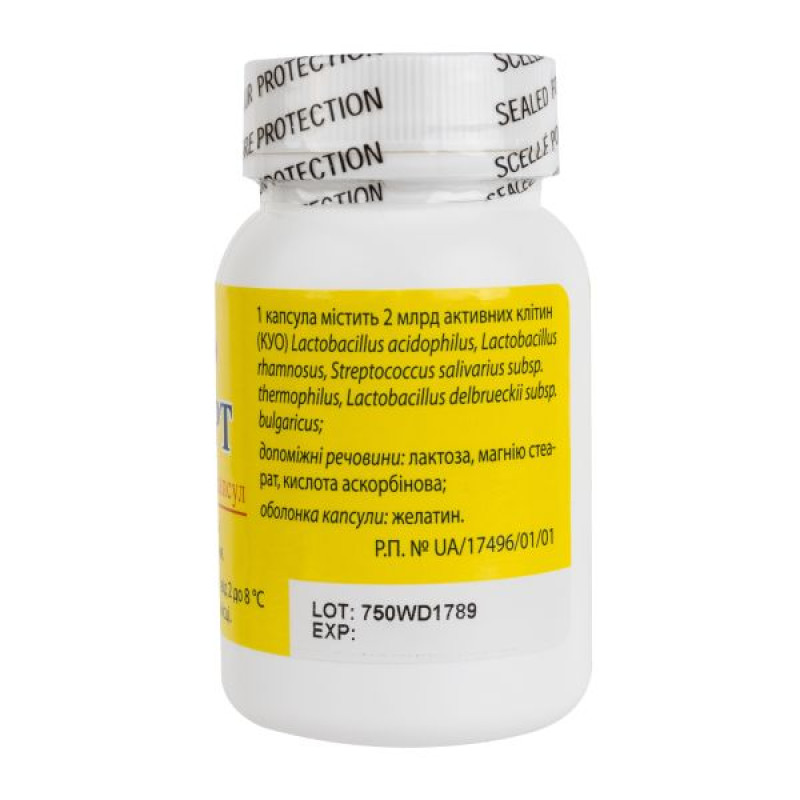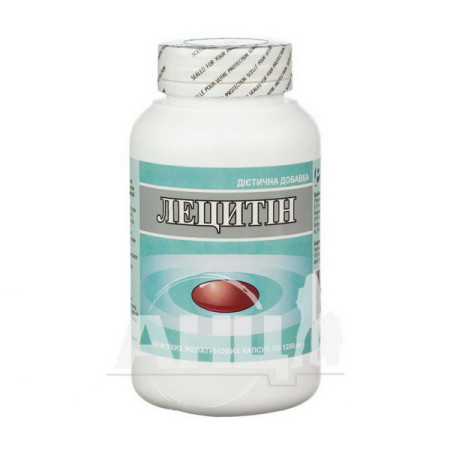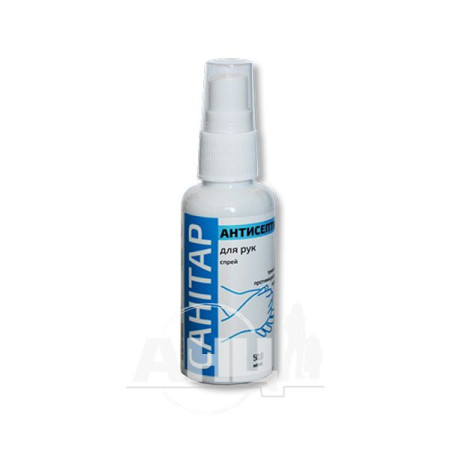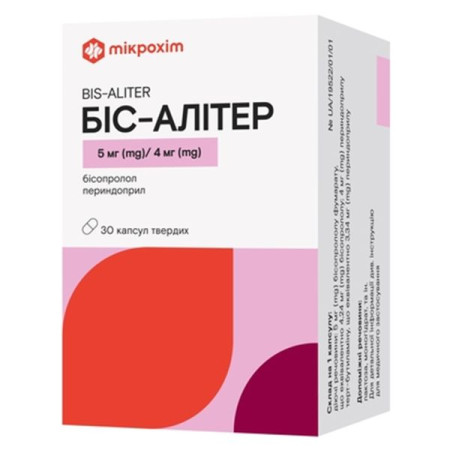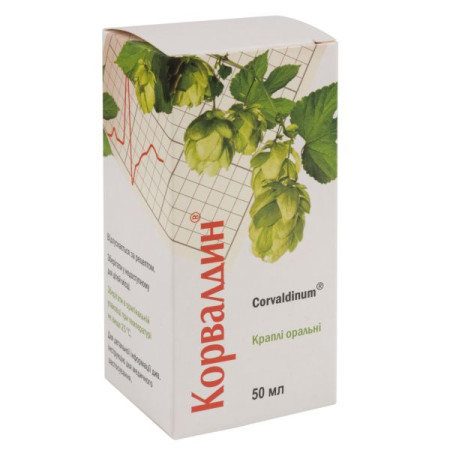Yogurt capsules 2 billion CFU bottle No. 75
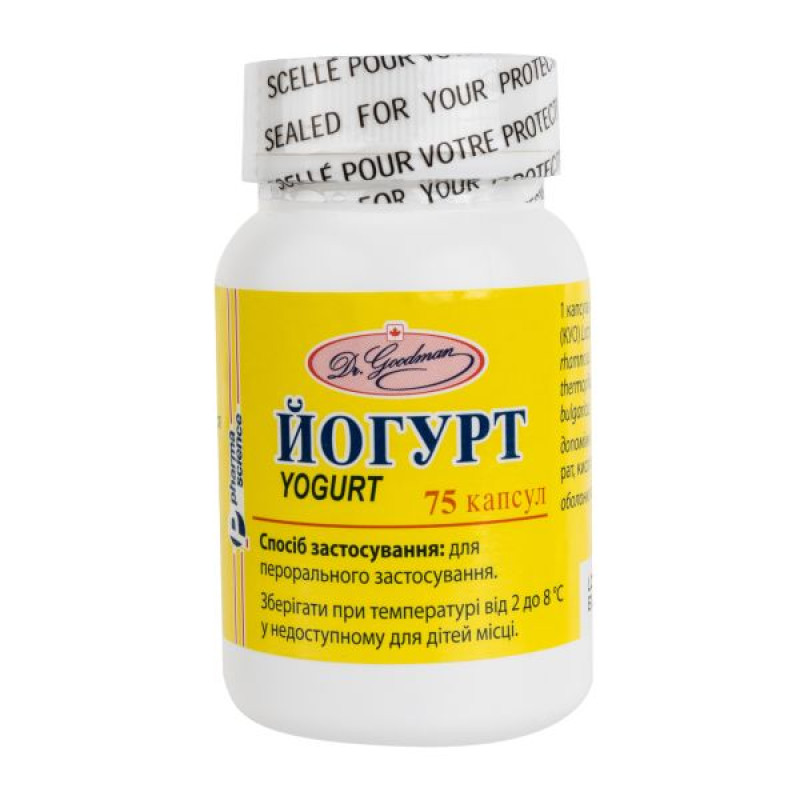
Instructions Yogurt capsules 2 billion CFU bottle No. 75
Composition
active ingredient: Lactobacillus acidophilus, Lactobacillus rhamnosus, Streptococcus salivarius subsp. thermophilus, Lactobacillus delbrueckii subsp. bulgaricus;
1 capsule contains 2 billion active cells (colony-forming units (CFU)) of Lactobacillus acidophilus, Lactobacillus rhamnosus, Streptococcus salivarius subsp. thermophilus, Lactobacillus delbrueckii subsp. bulgaricus;
excipients: lactose, magnesium stearate, ascorbic acid;
capsule shell: gelatin.
Dosage form
Capsules.
Main physicochemical properties: cream-colored gelatin capsules; capsule contents are a fine white powder with a yellowish tinge (variations to ivory color and the presence of individual darker granules are possible).
Pharmacotherapeutic group
Antidiarrheal microorganisms. Combination of lactobacilli.
ATX code A07F A51.
Pharmacological properties
Pharmacodynamics
Lactic acid bacteria of the preparation Yogurt are part of the normal human intestinal flora and play an important role in ensuring colonization resistance, immunostimulating, vitamin-forming, detoxifying and digestive functions of the body. The antimicrobial activity of lactic acid bacteria is manifested against staphylococci, protea, enteropathogenic Escherichia coli and fungi of the genus Candida and is associated with their ability to produce lactic acid, lactocins, as well as their immunomodulatory properties, such as the ability to increase cytokine activity and stimulate phagocytosis of lymphocytes and macrophages in the intestine.
Lactobacilli in Yogurt affect intestinal peristalsis, participate in the digestion of proteins, the breakdown of lactose into glucose and galactose, and contribute to the production of lactic acid.
Lactic acid bacteria reduce the pH of the intestinal contents, prevent the growth and reproduction of pathogenic and conditionally pathogenic microflora. Lactobacteria are a barrier to the penetration of sensitizing substances (endotoxins, bacterial and food allergens) from the intestine into the blood. The viability of the bacteria that make up the Yogurt preparation is not impaired when passing through the esophagus, stomach and duodenum. When incubated in a solution of gastric juice at 37 °C and pH 3 for three hours, they remained fully viable. In addition, they continued to grow in a nutrient medium containing 1% bile. All this ensures the stable passage of the bacteria that make up the Yogurt preparation to the place of their action - the small and large intestines.
The colonization ability of the Yogurt preparation culture is enhanced by combination with Streptococcus thermophilus.
Lactobacillus delbrueckii subsp. bulgaricus and Streptococcus thermophilus contain high levels of β-galactosidase. Patients with β-galactosidase deficiency in intestinal epithelial cells are able to adsorb lactose in the presence of Lactobacillus delbrueckii subsp. bulgaricus and Streptococcus thermophilus.
Pharmacokinetics
The active ingredients of the drug Yogurt are not absorbed from the digestive tract, therefore, there are no pharmacokinetic research data.
Indication
prevention and treatment of acute gastroenteritis in children and adults. prevention and treatment of antibiotic-associated diarrhea in adults and children. in the complex therapy of allergic diseases (atopic dermatitis, food allergies).
Contraindication
Yogurt is contraindicated in case of hypersensitivity to the active and auxiliary ingredients of the drug or to gelatin, milk or soy.
Yogurt should not be used in patients with immunodeficiency conditions such as AIDS, lymphoma, or in patients with autoimmune diseases who are receiving injectable immunosuppressive drugs or corticosteroids (at a dose of more than 0.5 mg/kg of body weight per day in terms of prednisone).
Yogurt should not be used in patients with short bowel syndrome due to the risk of developing D-lactic acidosis.
Interaction with other medicinal products and other types of interactions
Not studied.
Application features
You should stop using Yogurt and consult a doctor if symptoms of digestive disorders (such as diarrhea) occur, worsen, or persist for 3 days.
You should not use Yogurt without a doctor's advice if you experience symptoms such as fever, vomiting, bloody diarrhea, or severe abdominal pain.
Very debilitated patients in a life-threatening condition, usually in intensive care units. Patients with central venous catheters, patients with myocarditis or endocarditis or after cardiac surgery, patients after gastrointestinal or oral surgery (including tooth extraction), as open wounds can be a portal of entry for infection. Patients with blood in their stool, especially children and the elderly, as permeable intestinal barriers are potential sites through which microbes can enter the bloodstream. Patients with significantly weakened and suppressed immune systems, including patients after stem cell or solid organ transplantation, patients receiving injectable immunosuppressive drugs or corticosteroids for autoimmune diseases (at a dose of more than 0.5 mg/kg body weight per day in terms of prednisolone), patients after radiotherapy or chemotherapy, and patients with an underdeveloped immune system, such as premature newborns.
Since yogurt contains strains of bacteria that produce D-lactate (D-lactic acid), patients with short bowel syndrome who may develop D-lactic acidosis should avoid taking this medication.
Excipients. Since the lactic acid bacteria Lactobacillus delbrueckii subsp. bulgaricus and Streptococcus thermophilus have high levels of β-galactosidase, patients with β-galactosidase deficiency in intestinal epithelial cells are able to adsorb lactose in the presence of these bacteria. Therefore, patients who have intolerance to certain sugars can use Yogurt, taking into account the properties of these lactic acid bacteria that are part of the preparation.
Ability to influence reaction speed when driving vehicles or other mechanisms
Yogurt does not affect the reaction speed when driving or using other mechanisms.
Use during pregnancy or breastfeeding
Lactobacilli are naturally present in the intestines. Yogurt can be used during pregnancy and breastfeeding.
Method of administration and doses
The drug is taken orally, during meals, preferably at the same time as meals.
For children or adults who cannot swallow the capsule, it is recommended to open the capsule and mix its contents with a small amount of food or liquid.
For a child, pour out the contents of the capsule or, if necessary, approximately half of the contents and mix with food or drink intended for the child.
Doses for children:
aged 3 months to 1 year: 1–2 × 109 CFU per day;
aged 1 to 3 years: 2–4 × 109 CFU per day;
ages 3 to 12 years: 4–8 × 109 CFU per day;
For adults and children over 12 years of age: 6–12 × 109 CFU per day.
The duration of the course of application is 25–30 days. If necessary, the course can be repeated.
Children
Yogurt is used for children aged 3 months and older.
Overdose
There are no reports of overdose.
Adverse reactions
Adverse reactions are very rare. Hypersensitivity reactions, rash, itching are possible.
Expiration date
3 years.
Storage conditions
Store at a temperature of 2 to 8 ºC out of the reach of children.
Transportation and temporary storage of the drug at a temperature not exceeding 30 °C for no more than 30 days is permitted.
Packaging
75 capsules in bottles.
Vacation category
Without a prescription.
Producer
Pharmascience Inc.
Location of the manufacturer and its business address
6111 100 Royalmount Avenue, Montreal, Quebec H4P 2T4, Canada.
There are no reviews for this product.
There are no reviews for this product, be the first to leave your review.
No questions about this product, be the first and ask your question.







